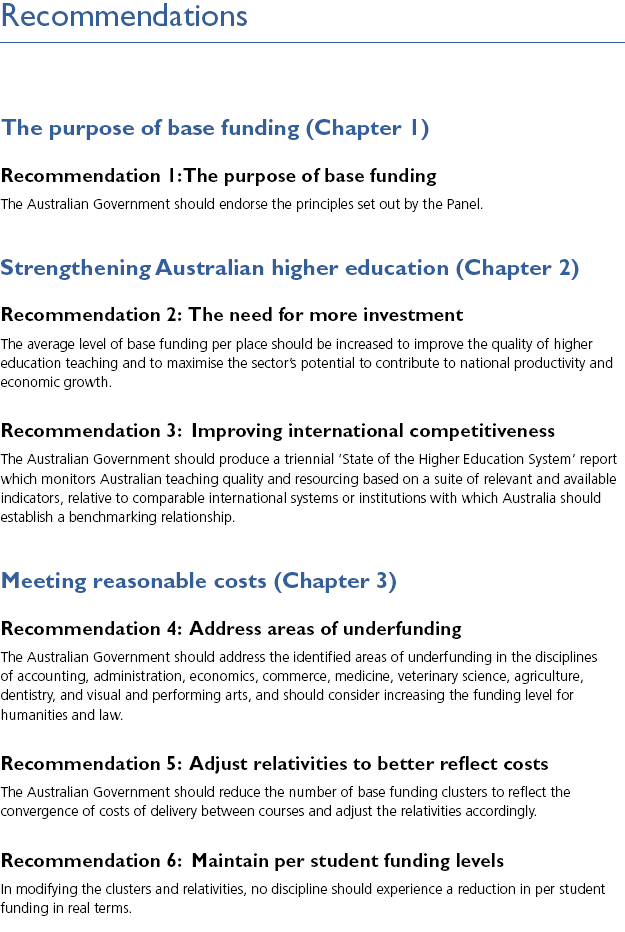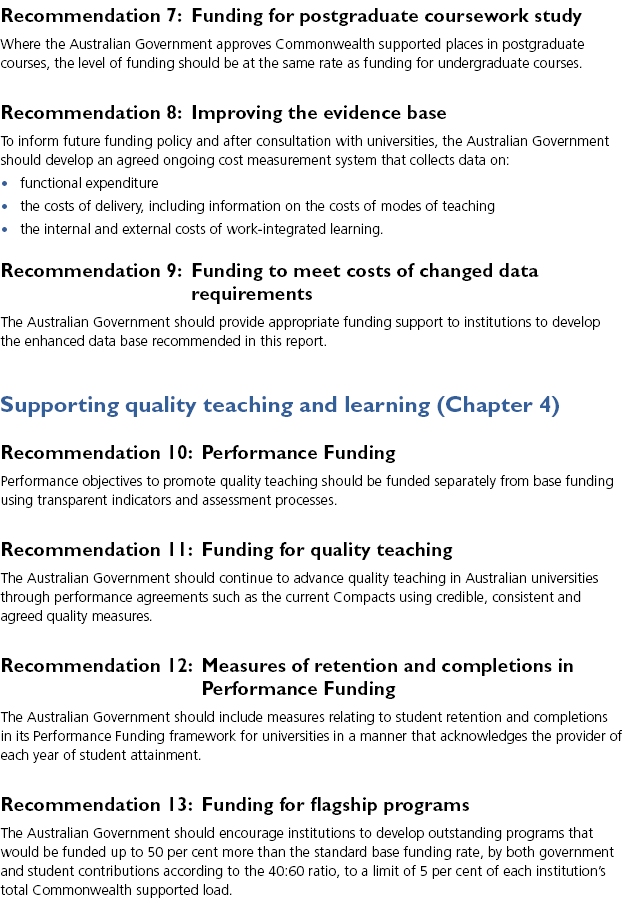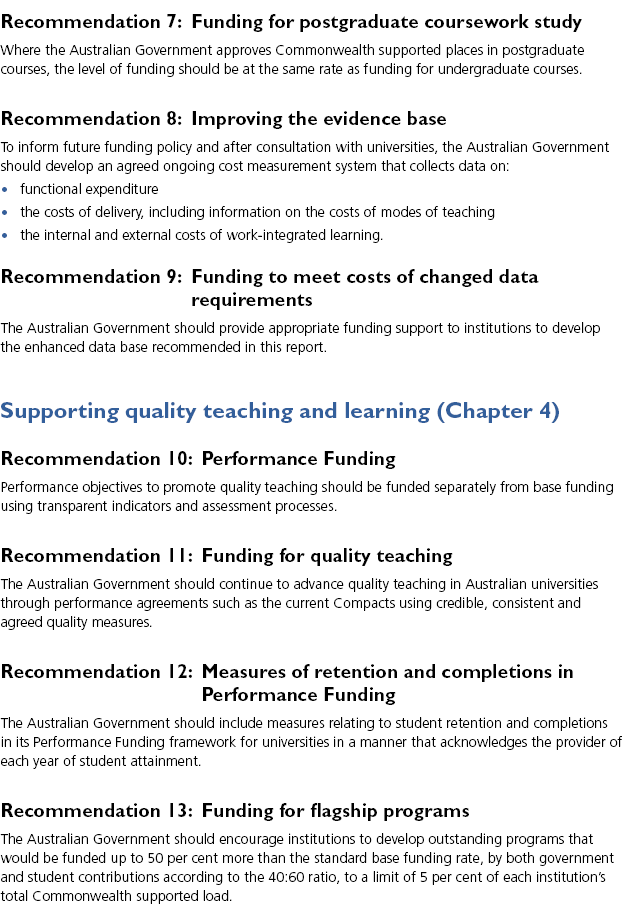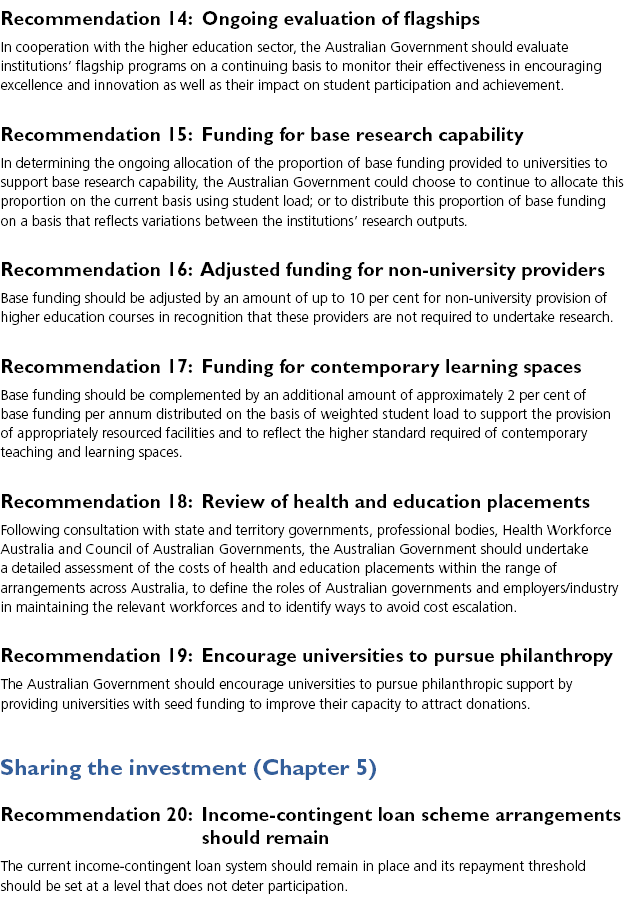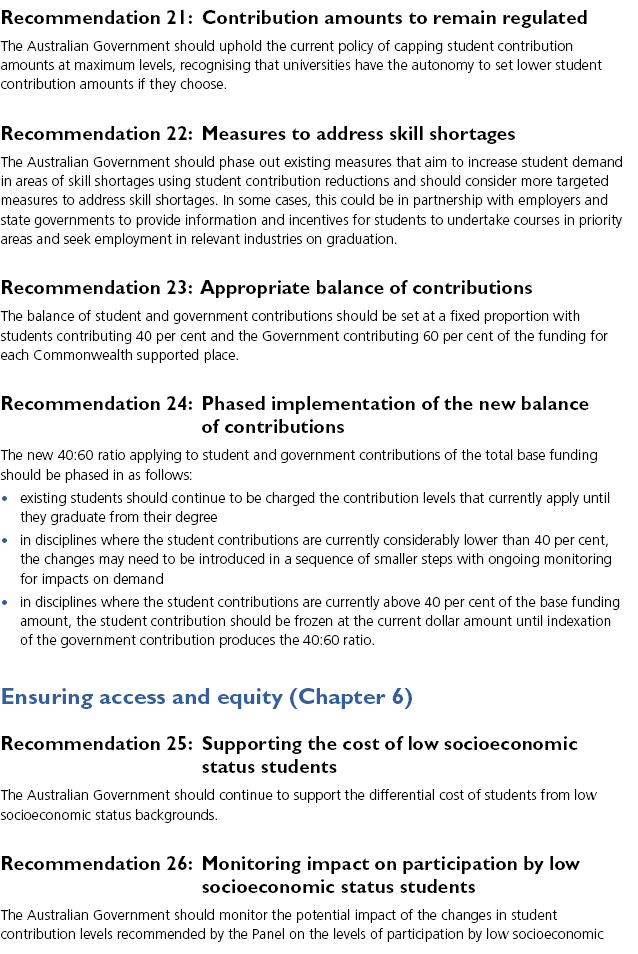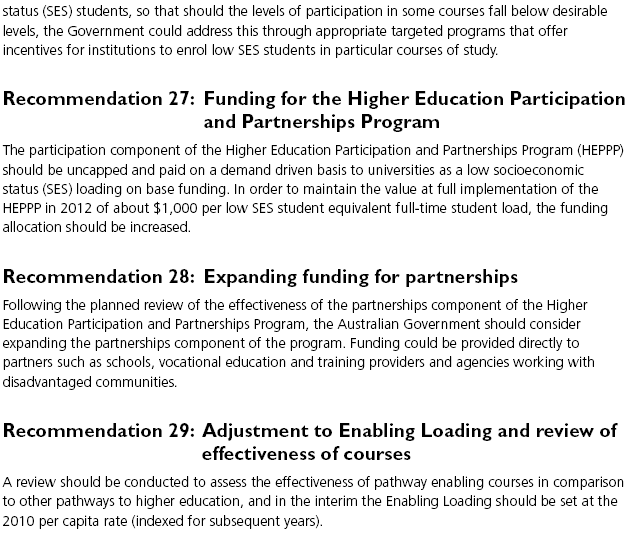|
|
|
|
|
|
|
News & Views item - February 2012 |
![]() Implementation of Universities' Base Funding Review May Await 2013-14 Budget.
(February 17, 2012)
Implementation of Universities' Base Funding Review May Await 2013-14 Budget.
(February 17, 2012)
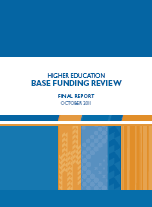 John
Ross reporting in today's Australian writes: "Senator Evans told a
Senate estimates committee hearing that consultations on the
Lomax-Smith review
John
Ross reporting in today's Australian writes: "Senator Evans told a
Senate estimates committee hearing that consultations on the
Lomax-Smith review![]() were 'too tight' to allow any big decisions in the May budget." Commissioned in
October 2010 the report was presented to the Minister for Tertiary
Education, Skills, Jobs and Workplace Relations, Senator Chris Evans, at the end
of October last year.
were 'too tight' to allow any big decisions in the May budget." Commissioned in
October 2010 the report was presented to the Minister for Tertiary
Education, Skills, Jobs and Workplace Relations, Senator Chris Evans, at the end
of October last year.
Senator Evans reiterated to Senate Estimates that the government was likely to provide “staged responses” to the report, which had its public release in December last year: "There’s a lot in it, and part of the response might be to prioritise issues that people think ought to be dealt with. It’s a question of working through with the sector what the priorities and their attitudes to the recommendations are."
Shadow Universities Minister Senator Brett Mason (Lib.) assuming the high ground accused Labor of burying "a key plank" of the Bradley review of higher education that it investigate the adequacy of base funding: "The first real opportunity for the government to act on the (base funding) review will be in the 2013-14 budget," Senator Mason said in a statement. "No new funds, if any, will start flowing to universities until the 2014 academic year – over six years since the advent of Labor government." Furthermore, Senator Mason said the government had: "no vision for university infrastructure beyond political expediency and short term spend-as-you-go mentality".
Of course how much right a Liberal politician has for finger pointing is moot at the very least.
In any case Senate Estimates was told the government had no plans to inject additional capital into the Education Investment Fund which currently holds about $2.7 billion in uncommitted funds ($790 million in interest earnings). In addition there are some $4.6 billion which have been committed of which $2.6billion have been spent.
Mr Ross in his report brings up the issue:
Coalition senators have complained of being short-changed in this week’s estimates hearings, after tertiary education was moved from the education to the economics committee in line with last year’s ministerial reshuffle.
This left less than two-and-a-half hours for questions on tertiary education in a program dominated by Treasury issues. The education committee typically allocated almost twice as long.
Last week the manager of government business in the Senate, Mark Arbib, said he understood extra time had been allocated to the committee to examine tertiary education this morning. But this hasn’t eventuated.
Like it or not and despite the nation having one of the best economic outlooks of first-world countries the higher education sector is in difficulty in attempting to improve its position within its cohort of nations.
____________________________________________
Here we reprint the 13 Enduring Principles which the Lomax-Smith report states "underpins base funding, followed by its 29 recommendations.
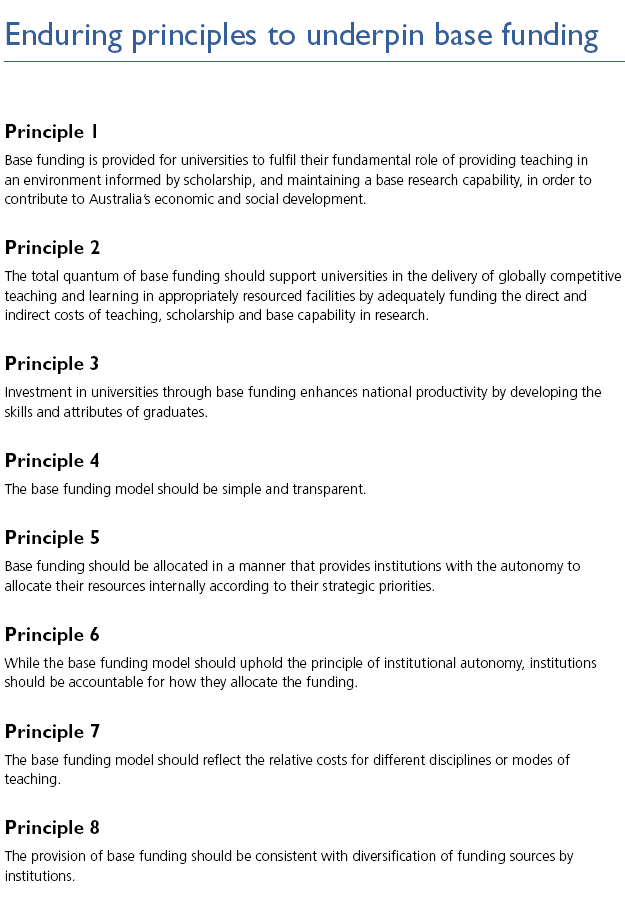
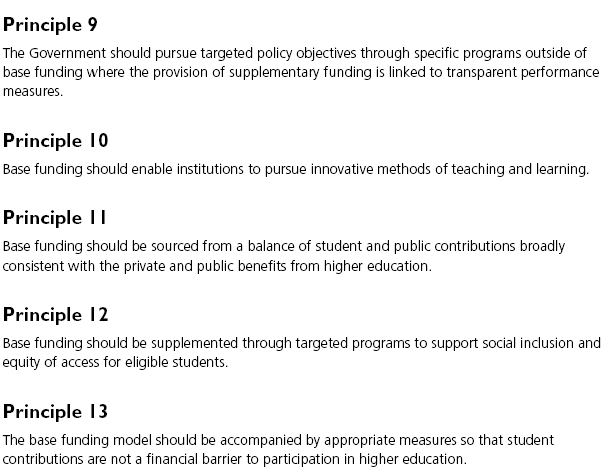
_________________________________________________________________________
